The BC Assembly of First Nations (BCAFN) has published a number of reports and discussion papers on current and urgent issues. See the list below:
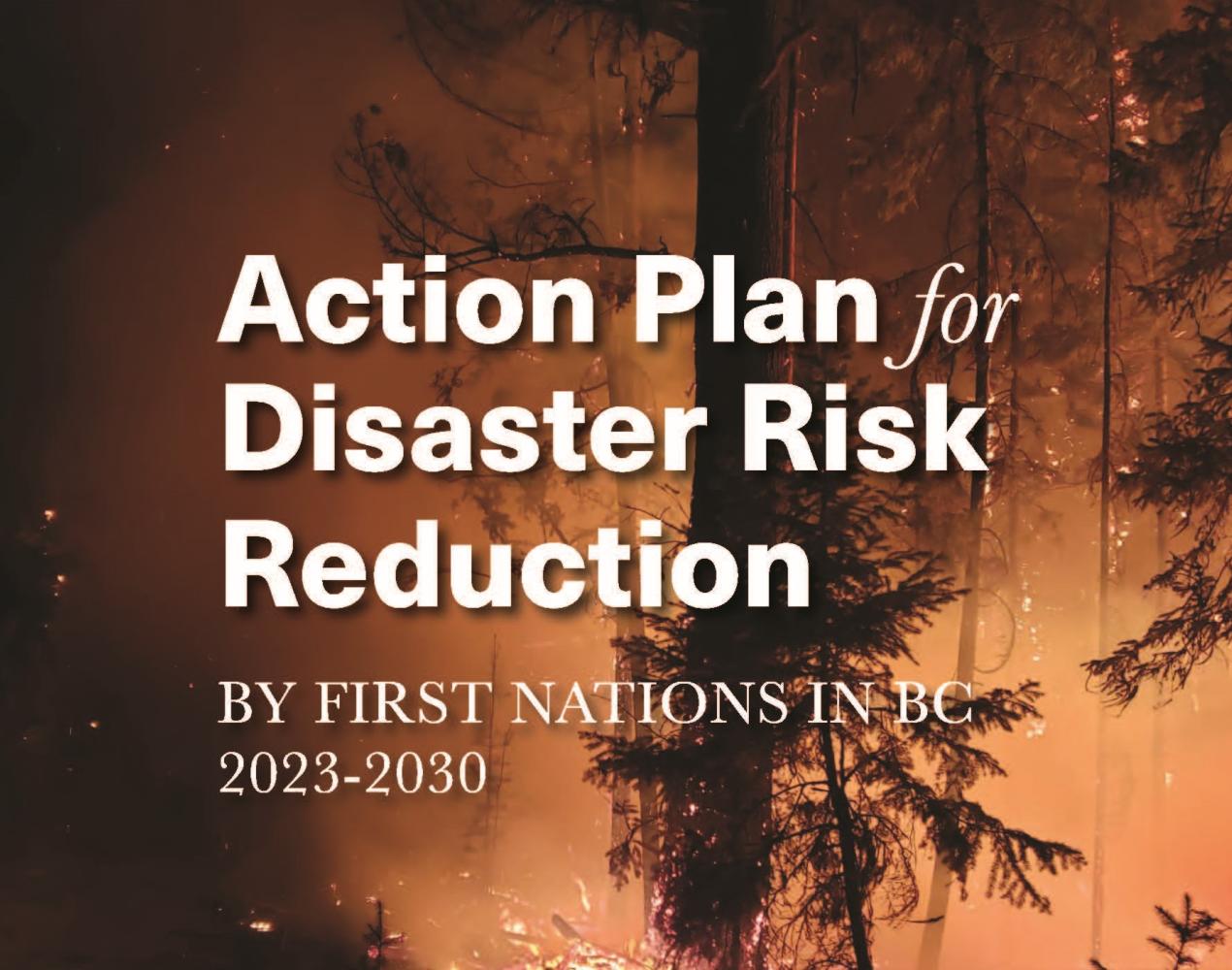
Action Plan for Disaster Risk Reduction by First Nations in BC (2023-2030)
The Action Plan for Disaster Risk Reduction by First Nations in BC provides a roadmap for building community resilience and preparedness, strengthening infrastructure and building standards, and enhancing emergency response and recovery capacities. By implementing this plan, First Nations in BC can reduce disaster risk and build a safer and more sustainable future for their communities.
Action Plan for Disaster Risk Reduction by First Nations in BC PDF
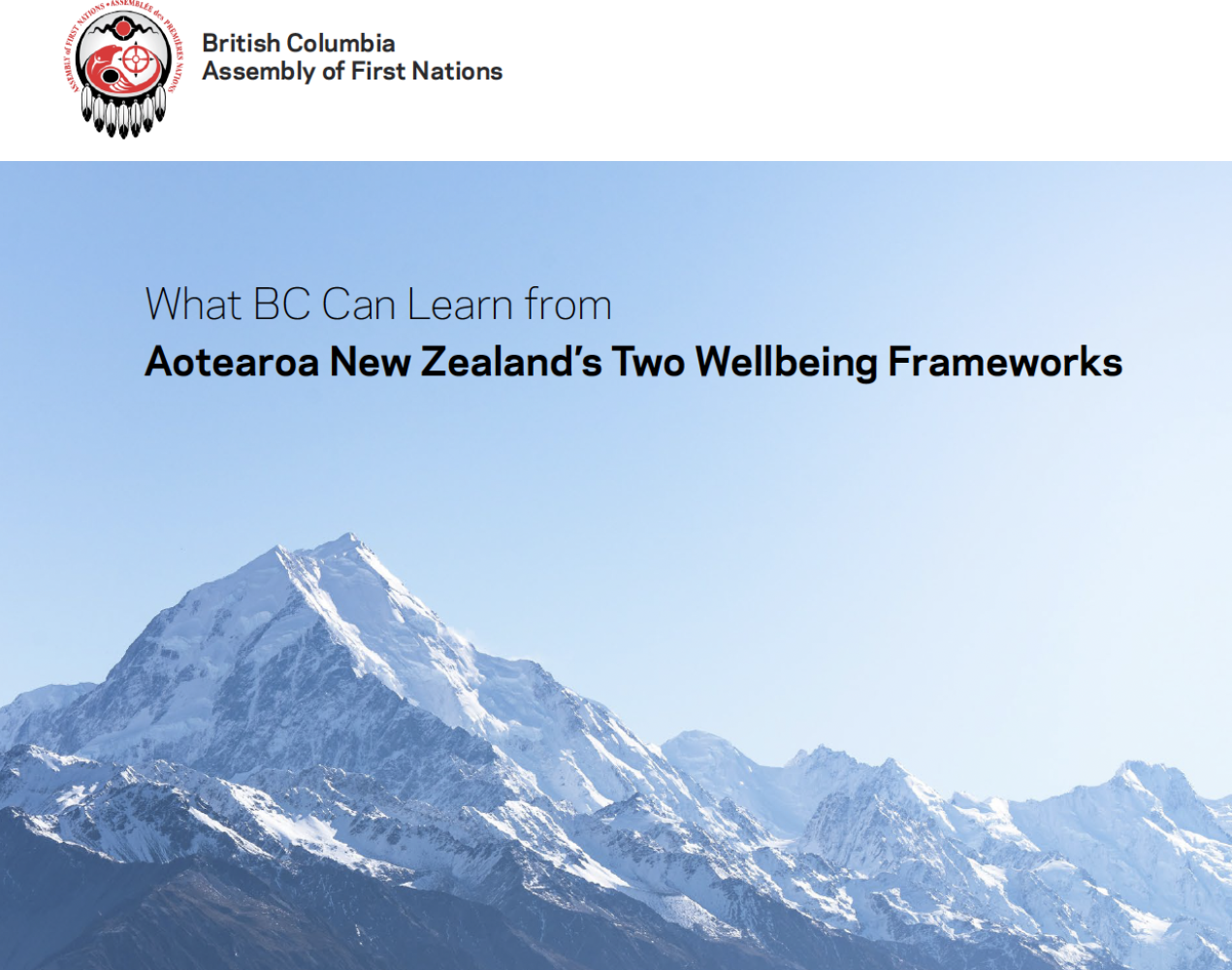
What BC Can Learn from Aotearoa New Zealand’s Two Wellbeing Frameworks (2023)
A number of countries have adopted, or are in the process of adopting, GDPalternatives that better reflect the wellbeing of their people and populations. This report offers an indepth, expert-informed analysis of how BC can learn from Aotearoa New Zealand’s work in the wellbeing economy arena.
What BC Can Learn from Aotearoa New Zealand’s Two Wellbeing Frameworks PDF
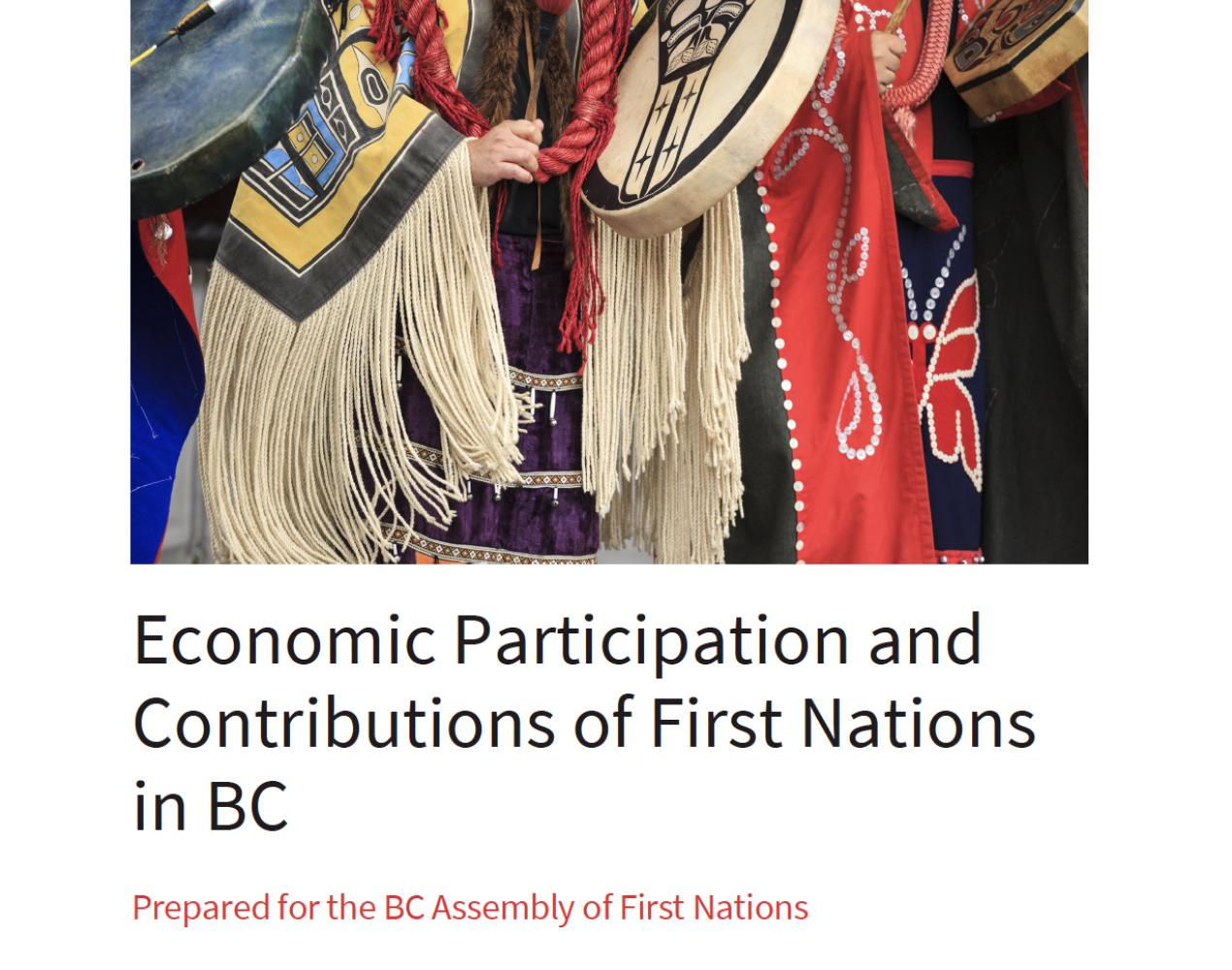
Economic Participation and Contributions of First Nations in BC (2023)
First Nations economic development is a priority for First Nations organizations across Canada. In BC, the BC Assembly of First Nations (“BCAFN”) has taken a lead role in advancing economic development and supporting First Nations in achieving their economic development goals and objectives. As part of this, the BCAFN is creating a BC First Nations Economic Development Centre of Excellence (“CoE”).
The BC Assembly of First Nations engaged MNP LLP to undertake a study examining the economic participation and contribution of First Nations in BC. The report is intended to provide a baseline and will be used to track progress moving forward.
Economic Participation and Contributions of First Nations in BC Report PDF

Stories Connect Us: BCAFN 2022 Women, Gender Diverse and 2SLGBTQQIA+ People's Dialogue Sessions (2022)
The themes of the sessions this year were, Stories Connect Us, and We All Have a Sacred Role. Rich dialogue and diversity of perspectives contributed to the sessions that were held this year. The recommendations and priorities identified through these discussions are carried forward and implemented in BCAFN's work and support First Nations communities to do the same.
Stories Connect Us: BCAFN 2022 Women, Gender Diverse and 2SLGBTQQIA+ People's Dialogue Sessions PDF

FNLC Intentions Paper: Towards Revenue Sharing of Water Licence Rentals in British Columbia (2022)
This Intentions Paper explores what revenue sharing of water licence rentals with First Nations in British Columbia might look like, what it could support, and why it should be prioritized.
FNLC Intentions Paper: Towards Revenue Sharing of Water Licence Rentals in British Columbia PDF

Water Dialogue Series: Canada Water Agency What We Heard Report (2022)
In 2021, the BC Assembly of First Nations (BCAFN) received a mandate from the Chiefs in Assembly through Resolution 07/2021 entitled, "Advocating for First Nations Engagement, Collaboration and Co-Development of the Canada Water Agency". This mandate directed BCAFN staff to seek capacity funding from Environment and Climate Change Canada (ECCC) to promote a discussion with First Nations in BC on the federal government’s proposed Canada Water Agency (CWA). Through this funding, BCAFN hosted a five-part virtual Water Dialogue Series in March 2022. The series provided space for First Nations in BC to discuss the potential impacts of the CWA and provide considerations for its development and implementation. Over 275 participants attended the BCAFN Water Dialogue Series, including First Nations Chiefs, leadership, Knowledge Keepers, youth, women, 2SLGBTQQIA+, tribal council representatives, technical experts, and community members.
During the sessions, BCAFN hosted a range of guest speaker presentations and panel discussions to prompt participants with three key considerations as they relate to the proposed CWA:
- What concerns, issues, and priorities are First Nations facing related to freshwater?
- What immediate steps should Canada take to co-develop the scope and objectives of the Canada Water Agency with First Nations?
- How could the Canada Water Agency work collaboratively with First Nations?
Water Dialogue Series: Canada Water Agency What We Heard Report PDF

First Nations Carbon: A BCAFN Discussion Paper (2022)
The rights of First Nations in BC are land-based Aboriginal rights. First Nations communities in BC have the right to the carbon stored and absorbed in their territories and the potential revenues related to such carbon. This discussion paper will demystify carbon for First Nations in BC. What is carbon? What are First Nation rights with regard to carbon? How do carbon offsets work and how can First Nations in BC benefit from them?
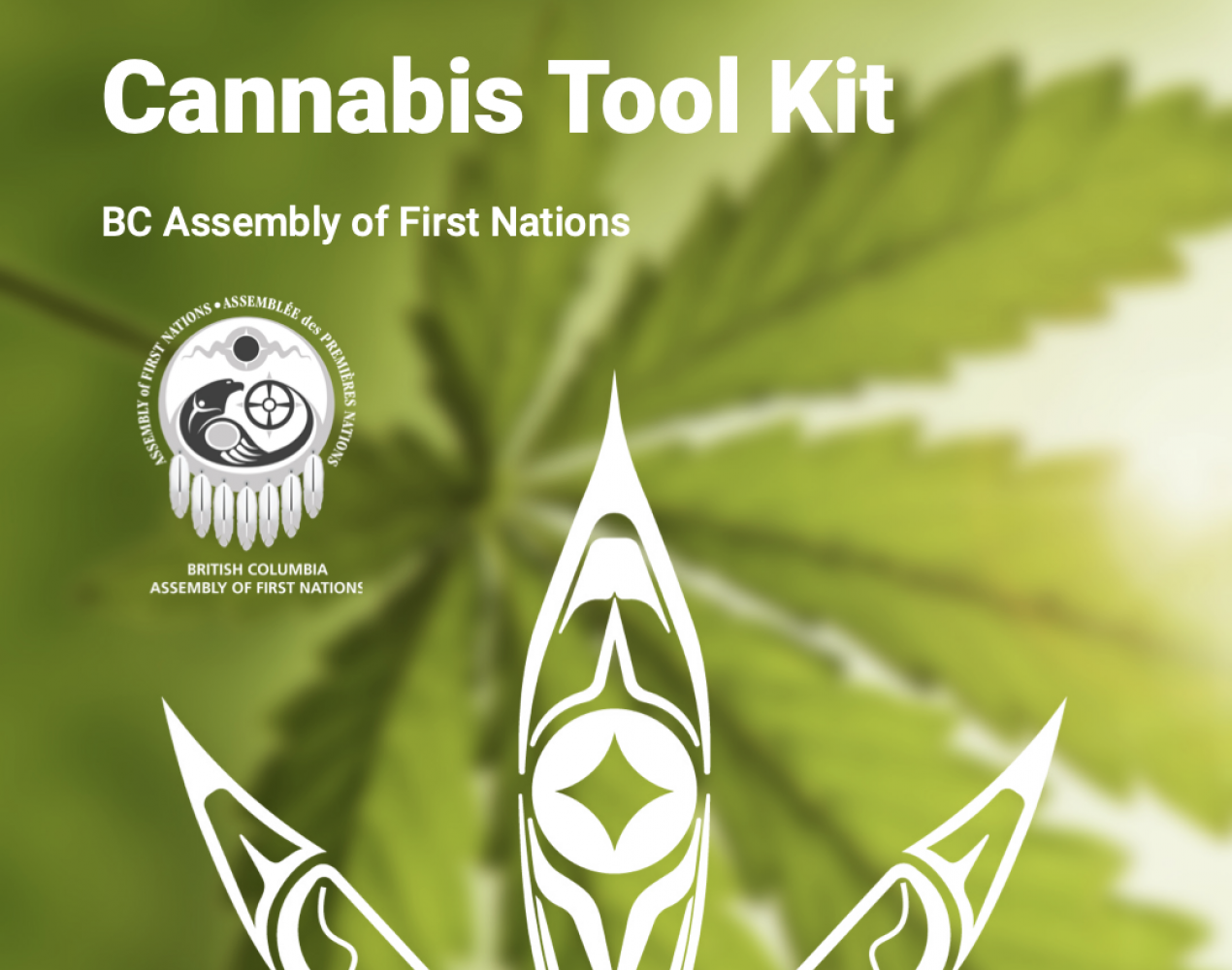
Cannabis Tool Kit (2021)
This tool kit provides information and resources regarding the legalization and economic development aspects of cannabis from a First Nations perspective. The Cannabis Tool Kit is composed of four parts. First, a discussion paper on First Nations Stories of Economic Development and Cannabis explores a number of cases studies from First Nations people and Nations and provides a high-level view of the landscape. Next, an in depth-legal memo introduces a more nuanced understanding of the legal and economic challenges and opportunities First Nations are faced with. Finally, two draft template pieces are put forward for discussion and as a potential jumping off point for Nations who are exploring how they may wish to regulate, make agreements, or make laws with respect to cannabis in their territories.
The opportunity to continue the dialogue, collaborate, and gain strength through the sharing of our stories and expertise is an exciting one, as First Nations press to participate in and occupy the emergent cannabis sector. We look forward to supporting First Nations as they determine their path forward on cannabis governance and economic development.
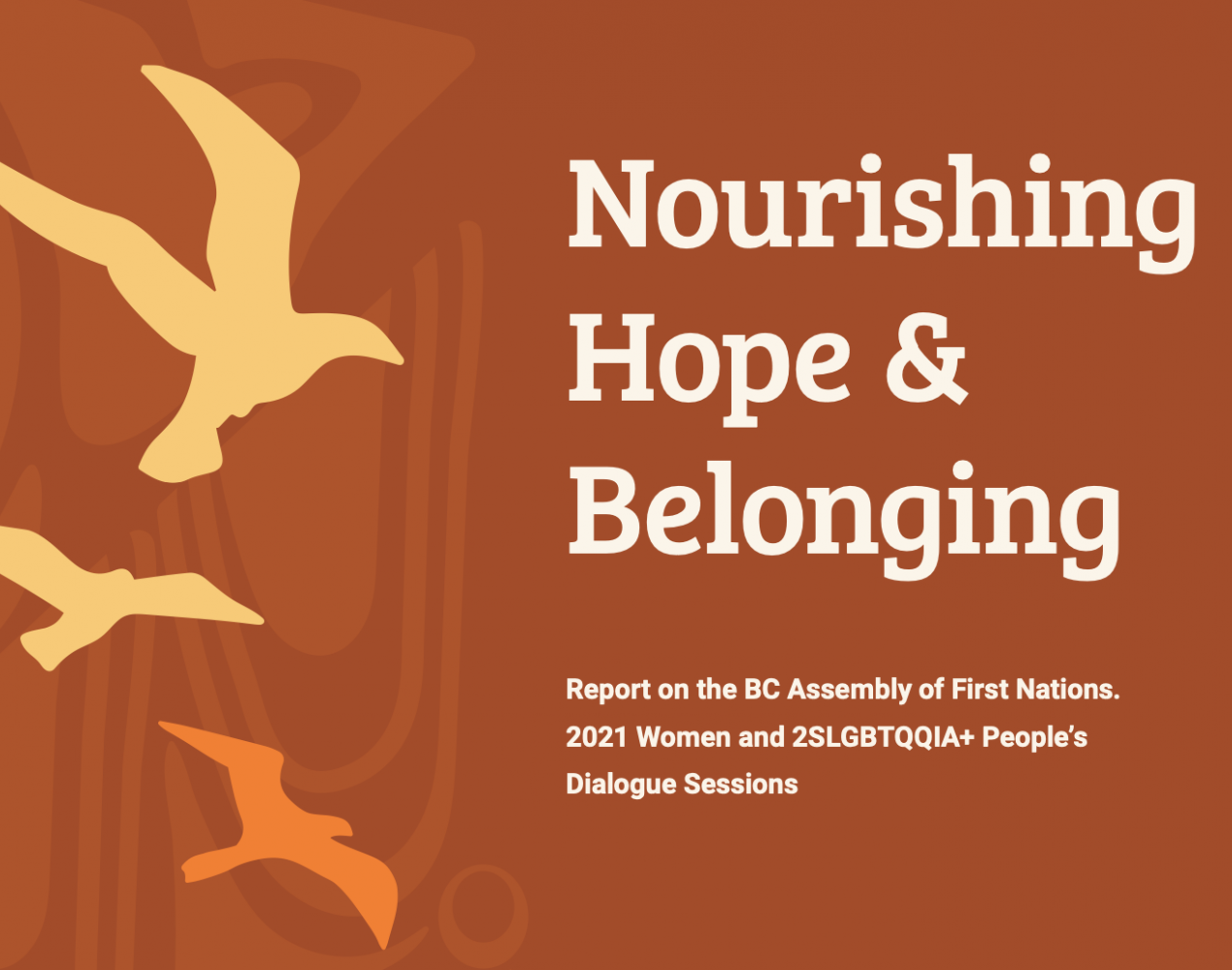
Nourishing Hope and Belonging: Report on the BC Assembly of First Nations. 2021 Women and 2SLGBTQQIA+ People’s Dialogue Sessions (2021)
These Dialogue Sessions brought Indigenous women, 2S, and LGBTQQIA+ people together to support one another and gain strength to thrive in political, business, family, and community contexts. The planning advisory committee felt this was especially important this year, as many of us find ourselves grieving, fatigued, and isolated. The theme for this year’s sessions was “Nourishing Hope and Belonging”. Through the dialogue and interactions of this event, our hope was that those joining might receive nourishment, and that their sense of hope and belonging would be uplifted.
A series of lead up sessions on April 13, 14, and 15, 2021 revolved around the themes of gender identity, allyship, self-care, wellness, and reclaiming our distinct roles and responsibilities. Following this, the main session on April 22, 2021 presented an opportunity to build upon these initial dialogues and knit the various themes together.
This report shares more broadly the perspectives and immense wisdom that knowledge keepers, cultural support individuals, panelists, facilitators, session leaders, graphic recorders, and participants shared during the five Dialogue Sessions, and outline how BCAFN intends to carry forward the dialogue with action in several key areas.

Centering First Nations Concepts of Wellbeing: Toward a GDP-Alternative Index in British Columbia (2020)
This discussion paper explores the ways in which our official BC measures of economic value are inadequate and fail to reflect the values of First Nations governments and individuals to the overall wellbeing of the province.
BC, like Canada and most countries around the world, currently measures economic growth using gross domestic product (GDP). GDP is a crude proxy for gauging economic wellbeing in that it essentially measures only national income. However, countries around the world are increasingly adopting new indices of wellbeing that measure economic income, plus a full suite of indicators such as the environment, culture, safety, leisure time, health, and education. These wellbeing indices measures are remarkably similar to those held by BC Indigenous peoples.
Indigenous peoples in BC already have a sophisticated concept of what constitutes a “good life”, a conception and way of living that has been refined over millennia and that varies within each culture, place, and language. An Indigenous good life is one that is “richer” with, for example, clean air, regenerative wild fisheries and forests, socially healthy families, the passing-down of cultural values and language, excellent education, respect for traditions that value Elders and living Indigenous knowledge, a responsive health care system, and a natural environment that sustains our collective wellbeing and species.
Given the global trend in GDP-alternative measures, and considering the need for a productive and efficient COVID-19 recovery, there is an opportunity for BC to develop its own made-in-BC wellbeing index that considers Indigenous knowledge of environmental, health, education, community and cultural outcomes in order to improve the livelihoods of all British Columbians.

The Economic Development Toolkit (2019)
This toolkit has been developed to support Indigenous communities and Nations in participating in this extraordinary growth and to provide communities, at all stages of the economic development journey, with resources to support their planning, growth and overall development.
Tips, Tools and Techniques Toolkit
This companion document to the Economic Development Toolkit provides a wide range of useful resources. Building from the content in the Economic Development Toolkit, this toolkit will provide hands-on, useful resources for acting on what has been already presented, and creating a more complete “Blackbook”.

BCAFN Governance Toolkit: A Guide to Nation-Building (2014)
Developed in accordance with the former Regional Chief, Jody Wilson-Raybould’s Building on OUR Success action plan. The Governance Toolkit is a comprehensive guide intended to assist your Nation in building or rebuilding governance and navigating its way out from under the Indian Act at its own pace and based on its own priorities. Please see the below links to access the three volumes of the Governance Toolkit.
